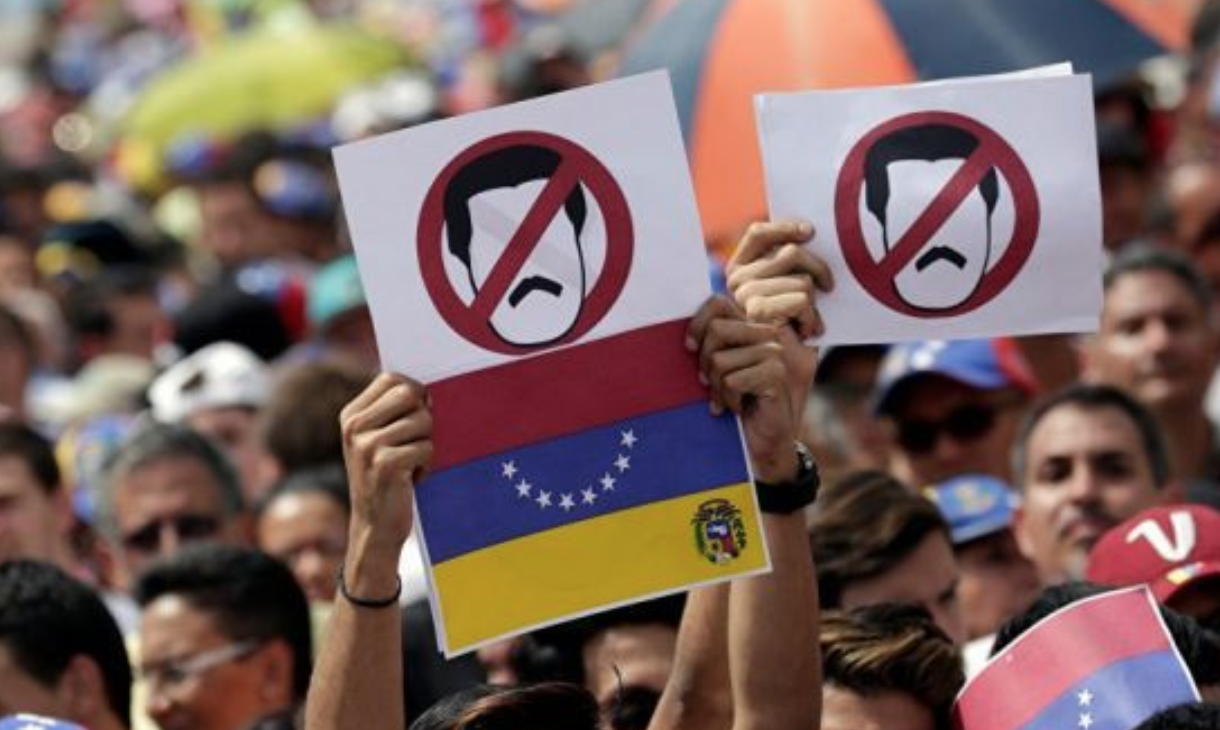Co-authors Stefania Vitale y Juan Manuel Trak
The Venezuelan opposition has announced that primaries are on the horizon. Will they achieve with them the validation of a leadership capable of disputing power to Chavism in 2024? To address this question, we must understand the current fragmentation of the Venezuelan opposition and its background.
The electoral growth of the opposition between 2009-2016 was linked to the creation of the Mesa de la Unidad Democrática (MUD), a coordination mechanism created by various opposition parties to increase their competitiveness. However, due to the autocratization process that has involved the selective use of different repressive mechanisms by the Maduro government, the unresolvable struggle for hegemony of the opposition leadership, and a short-sighted administration of its success in the 2015 parliamentary elections, the MUD was dismantled.
Since then, opposition groups have failed to coordinate effectively. The diagnosis of a weakened opposition can be seen through the 2021 regional elections, in which the opposition bloc had the opportunity to leverage its own competitive potential, even when measured against the United Socialist Party of Venezuela (PSUV).
Although the Venezuelan opposition had electoral potential at the sub-national level, as we pointed out in a recent publication, it was unable to take advantage of it. In 2021, the non-government vote outnumbered the government bloc by more than 50% in 19 of the 23 states that constitute the Venezuelan regional map. However, this margin translated into only four governorships in favor. In other words, the voter who cast his ballot in favor of a candidate other than the PSUV did so by selecting one among several anti-government options. This resulted in the proportion of votes received in total by all these candidates exceeding the proportion of votes registered for the government candidate.
This picture contrasts with the trend of previous sub-national elections. In previous elections, the MUD concentrated almost the totality of votes other than those of the candidates of the government party, although its electoral ceiling was not high enough to win more governorships in its favor.
After the failure to produce a change of political regime since 2019, a sort of rectification of the institutional route seems to be emerging. Several parties have resumed the work of organization and mobilization of their militancy and society and have announced their participation in primaries in 2023 with a view to the 2024 presidential elections. Does this open a possibility for the recomposition of the opposition? It depends.
It should be recalled that the primary elections constitute a mechanism for the selection of possible candidacies among many others. Therefore, they are not a political strategy or a means to choose a “vision of the country” or a “national leadership”, but a coordination tool only to decide who will run against Maduro in 2024. Moreover, primaries require prior coordination in terms of financing, conformation of the organizing team, pre – and post-electoral regulations and agreements, witness training, voter mobilization, and, fundamentally, the consensus of a prior objective and strategy to be effective going forward.
In this sense, the absence of institutionalized agreements prior to a primary and, in a particular context of weak parties, could imply the deepening of collective action problems such as low alignment of incentives to work around long-term collective objectives, inability to neutralize opportunists, and low mutual credibility.
The primaries could motivate a “winner-takes-all” mentality, which would imply that after the internal elections, individual incentives would be superimposed on collective incentives by the winner and his party, especially, from the moment they gain access to more financial resources, and therefore, dominate decision-making on behalf of the rest and of the Venezuelan society. On the other hand, it could jeopardize the representativeness factor, since a candidacy could be selected that represents a mobilized minority, but not the majority that aspires to political change in Venezuela.
Without a previous formal coordination mechanism, the primaries could exacerbate fragmentation and polarization among opposition parties and groups. This scenario under an authoritarian context could be exploited by the government to maximize contradictions and further appeal to cooptation and selective repression to reinforce division. This would deepen the incentives for some sectors to opt for a maximalist strategy or “spoiler” of the electoral process.
The challenge ahead for the Venezuelan opposition is enormous, and it will not be solved (completely) with the holding of primaries. On the contrary, given the current fragmentation, it seems important to prioritize the work of building a new pro-democracy coalition between young politicians and experienced leaders who create and assume more realistic positions, ready to negotiate and committed to a transition to democracy.
A broad, inclusive, and innovative movement that builds closer ties with civil society, and empathizes with the needs of the population, could generate hope, and thus motivate the mass mobilization required for a possible change in the future.
Stefania Vitale is an economist (Universidad Católica Andrés Bello, UCAB), MA in Public Management (IESA) and Ph.D. candidate at the Center for Development Studies of the Central University of Venezuela (UCV), @svitalem
Juan Manuel Trak is an Independent Researcher in Mexico. Ph.D. in Contemporary Political Processes and MA in Political Science from the University of Salamanca, @juanchotrak
Translated from Spanish by Janaína Ruviaro da Silva











